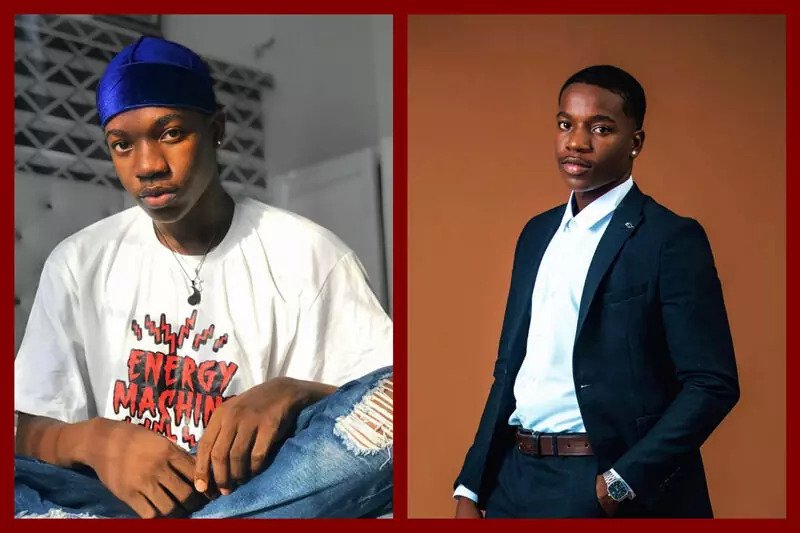
Iremide Adeoye
He recently had his say via his social media page, and fans have been reacting.
According to him, he was very surprised at the overwhelming reception of his character in his recent Nollywood movie, and he was pleased to see how the audience related to his role.
Iremide added that despite some negative comments he has also seen, he believes the love overshadowed the bad side.
His words, “When the audience can relate with the character, that’s great news for me. People have come to resonate more with the character, way more than I expected, and that is the joy for me as an actor when the audience can relate with the surface; that’s great news for me.
Acting as a queer character in Nollywood as Lolu Adeleke. It has been the biggest queer representation in Nollywood on that scale, and it feels great to be one of the performers of something like that. I was expecting some backlash, of course, because acting a queer character in a homophobic country, you don’t know what to expect.
Still, you know what to expect, but so far, so good; despite the bad and negative sides I have seen, I feel like the love has overshadowed the bad side. For me, I don’t want to focus on the negativity that comes from playing that character; the love and the people that do appreciate the work that I do is what I pay my attention to.”
WOW.
Nollywood is a sobriquet that originally referred to the Nigerian film industry. The origin of the term dates back to the early 2000s, traced to an article in The New York Times. Due to the history of evolving meanings and contexts, there is no clear or agreed-upon definition for the term, which has made it a subject to several controversies.
The origin of the term “Nollywood” remains unclear; Jonathan Haynes traced the earliest usage of the word to a 2002 article by Matt Steinglass in the New York Times, where it was used to describe Nigerian cinema.
Charles Igwe noted that Norimitsu Onishi also used the name in a September 2002 article he wrote for the New York Times. The term continues to be used in the media to refer to the Nigerian film industry, with its definition later assumed to be a portmanteau of the words “Nigeria” and “Hollywood”, the American major film hub.
Film-making in Nigeria is divided largely along regional, and marginally ethnic and religious lines. Thus, there are distinct film industries – each seeking to portray the concern of the particular section and ethnicity it represents. However, there is the English-language film industry which is a melting pot for filmmaking and filmmakers from most of the regional industries.
![DJ Baddo – All Of Me Remix ft John Legend [AuDio]](https://www.naijavibe.net/wp-content/uploads/wordpress-popular-posts/94409-featured-40x40.jpg) DJ Baddo – All Of Me Remix ft John Legend [AuDio]
DJ Baddo – All Of Me Remix ft John Legend [AuDio]  Dj Kamol – Crazy Gyration ft Skailey Normal [AuDio]
Dj Kamol – Crazy Gyration ft Skailey Normal [AuDio] ![Mr. Charis - All Back ft Zouwrah [AuDio]](https://www.naijavibe.net/wp-content/uploads/wordpress-popular-posts/67331-featured-40x40.jpg) Mr. Charis – All Back ft Zouwrah [AuDio]
Mr. Charis – All Back ft Zouwrah [AuDio]  Victor AD – Olofofo
Victor AD – Olofofo ![Iyanya – Credit ft Don Jazzy [AuDio]](https://www.naijavibe.net/wp-content/uploads/wordpress-popular-posts/167713-featured-40x40.jpg) Iyanya – Credit ft Don Jazzy [AuDio]
Iyanya – Credit ft Don Jazzy [AuDio] ![Yung6ix – I Pray ft Oritse Femi [AuDio]](https://www.naijavibe.net/wp-content/uploads/wordpress-popular-posts/163012-featured-40x40.jpeg) Yung6ix – I Pray ft Oritse Femi [AuDio]
Yung6ix – I Pray ft Oritse Femi [AuDio] ![Kolasoul - All Of Me [AuDio]](https://www.naijavibe.net/wp-content/uploads/wordpress-popular-posts/40876-featured-40x40.jpg) Kolasoul – All Of Me [AuDio]
Kolasoul – All Of Me [AuDio]  Tekno – Alleluya [AuDio + Viral ViDeo]
Tekno – Alleluya [AuDio + Viral ViDeo]  Victony, Don Toliver & Rema – Soweto
Victony, Don Toliver & Rema – Soweto ![DJ Enimoney - Shaku Shaku Therapy [MixTape]](https://www.naijavibe.net/wp-content/uploads/wordpress-popular-posts/155494-featured-40x40.jpg) DJ Enimoney – Shaku Shaku Therapy [MixTape]
DJ Enimoney – Shaku Shaku Therapy [MixTape] ![Drey Tunz & Erigga – Bless Me [AuDio]](https://www.naijavibe.net/wp-content/uploads/wordpress-popular-posts/171187-featured-40x40.jpg) Drey Tunz & Erigga – Bless Me [AuDio]
Drey Tunz & Erigga – Bless Me [AuDio]  Kolaboy – Omalicha ft Ejyk Nwamba
Kolaboy – Omalicha ft Ejyk Nwamba
 NaijaVibe NaijaVibe | Download Latest Nigerian Music & Mp3s
NaijaVibe NaijaVibe | Download Latest Nigerian Music & Mp3s

